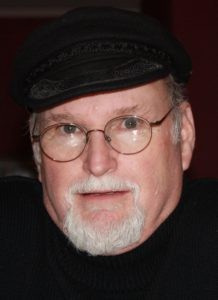In college I read a story by Leo Tolstoy called “How Much Land Does A Man Need?”
Tolstoy’s story is about a peasant named Pahom, whose desire is to own enough land to make him wealthy. It did not start out like that, but the acquisition of land made him hungry for more land, the nature of greed. One day, Pahom is introduced to the Bashkirs who make him a simple proposition: For 1,000 rubles, Pahom will be given the opportunity to claim as much land as he wants. He will begin at daybreak, claiming land with a spade as he walks, being sure to return to the beginning before the sun sets.

Michael Chancellor
Pahom is elated and on the day begins his walk — and he walks and walks and walks until he realizes at some point he needs to return before the sun sets. He turns around and begins to return to the starting line, having to run faster and faster as the sun sets on the horizon. He does make it back but dies of exhaustion. He is buried by his servants in a plot 6-feet long, thus answering the title question of the story.
I found myself thinking of the issue of homelessness in America and asking the “Tolstoy” question, “How much wealth does a nation need before it takes seriously homelessness within its borders?” As of 2019, the United States had a Gross National Product of $21.69 trillion.
How much wealth does a nation need to address systemic poverty in a nation of 330 million people? Poverty may lead the list for why people are homeless. Following that is the cost of affordable housing. Simply because of limited income, housing options are limited and for some non-existent.
“How much wealth does a nation need to address systemic poverty in a nation of 330 million people?”
The health care fight over the last 20-plus years was a fight because so many Americans have been unable to afford health care. Many familiar with this problem note that such families are one medical emergency or one unplanned crisis away from homelessness.
How much wealth does a nation need to address the addiction plague in this nation? Fact: 80% of our homeless veterans have mental illness or substance abuse problems. Because of my work with veterans, I understand why. The hypervigilance required to survive in the theater of war does not shut down when one returns to camp for a short sleep before going out the next day. So, soldiers self-medicate with alcohol or drugs and return home with not just PTSD but substance abuse problems as well.
The mental illness of veterans does not exhaust the homelessness issue. Rather, homelessness continues to encroach into the men and women who are unwilling or unable to get adequate mental health services.
Domestic violence and with it single-parent households cannot be separated. In fact, I am increasingly seeing women who have been victims of rape or domestic abuse from a spouse or boyfriend. They are barely hanging on trying to provide for children and themselves.
The prison in which I worked had a significant number of mentally ill offenders. Some of them had done horrific things. Others, though, were homeless without attention and medication and ended up in prison. They did receive psychiatric attention, mental health services, medical services, three meals a day and a generally safe place to sleep. However, the cost to the state was in excess of $30,000 per offender. In Texas, it is the “solution” for the mentally ill in our communities. Short funding mental health clinics in communities drives the severely mentally ill to the streets and homelessness.
Frankly, I cannot get my head around a Gross National Product of $21.69 trillion.
“As a prosperous nation, the largest economy in the world, we choose to do little or nothing about the homeless in our midst.”
However, what it tells me is that as a prosperous nation, the largest economy in the world, we choose to do little or nothing about the homeless in our midst. Instead, as a society, we push off the care of homeless on our churches, missions, advocacy groups, all with limited funds. In some ways, churches and inner-city ministries take up the challenge, but winter storms like parts of the nation experienced last week show how much more is needed.
In the past, ministries with which I worked never had enough.
So how much money, affluence and power does one nation need before it begins to see all who live in our borders, and in seeing all, respond to all whether they are registered voters or not?
Michael Chancellor served 33 years as pastor of four Baptist churches in Texas, seven years as a mental health manager in a maximum-security Texas prison and now is a therapist in private practice in Round Rock, Texas.

